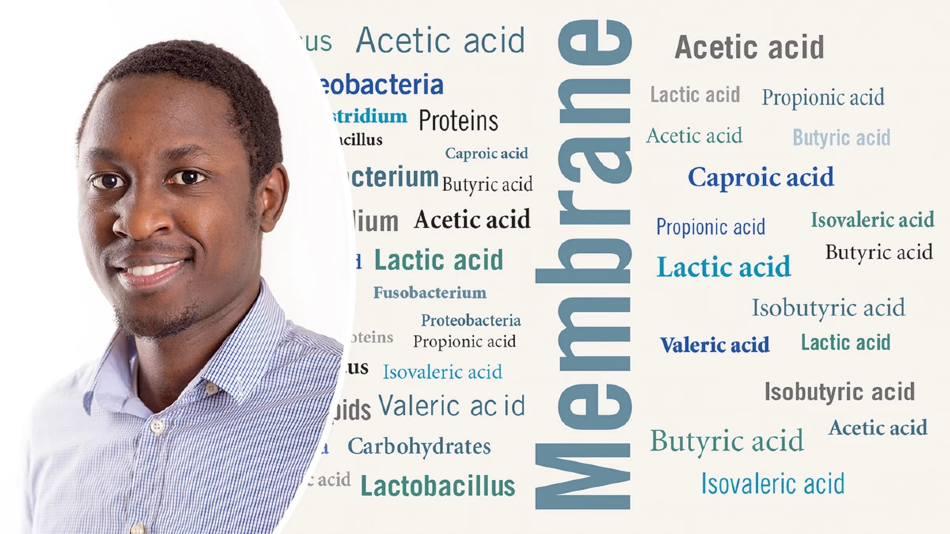Sep 22 2020
How can individuals sustainably utilize natural resources, like water and arable land? This is one of the most pressing problems being faced by current society.

Image Credit: University of Borås.
In addition to this, large amounts of food meant for human consumption simply end up as waste.
Steven Wainaina, from the Swedish Centre for Resource Recovery at the University of Borås in Sweden, has investigated a new method in his doctoral project. Through this method, food waste can be converted into high-value products and these, in turn, can be recycled to benefit the society considerably. The novel method also helps preserve certain natural resources.
A standard method to handle food waste is to process it into biogas via a process called anaerobic digestion using microbes. The final product obtained from this process is known as biogas.
In my project, we have used immersed membrane in bioreactors and modified the digestion process to obtain valuable organic acids, so called fatty acids, such as acetic acid, butyric acid and caproic acid, as the end products.
Steven Wainaina, Swedish Centre for Resource Recovery, University of Borås
Wainaina continued, “These acids have a higher market value than biogas. Furthermore, this research demonstrated for the first time that the organic acids can be transformed into edible filamentous fungi, which can be used in the production of animal feed. The fatty acids also can be used in the production of bio plastics.”
How Will Your Research be of Benefit for the Society and/or the Industry?
The trend in food waste generation is expected to increase as the human population continues to increase. Innovative food waste management techniques are therefore critically needed. The results obtained in this research highlight a possible and promising alternative of recycling food waste.
Steven Wainaina, Swedish Centre for Resource Recovery, University of Borås
The research project is a significant contribution to ongoing studies being performed within anaerobic digestion technology. It suggests an unusual method to allow the expansion of the potential outputs from anaerobic digestion centers. It also offers a fundamental basis for additional analyses that may result in full-scale implementation.
There has also been plans to scale up the production and separation of organic acids in membrane bioreactors. More studies to improve the conversion of organic acids into edible fungi are also being conducted.
The doctoral thesis is titled “Developing a food waste-based volatile fatty acids platform using an immersed membrane bioreactor.”
Research Area: Resource Recovery
On the whole, the purpose of the research project was to demonstrate the idea of modifying the anaerobic digestion of food waste from a biogas production procedure into a material recovery procedure.
The study suitably aligns with the Sustainable Development Goal number 12 which strives to support sustainable production and consumption, and also the management and protection of natural resources.
Wainaina publicly defended his doctoral thesis at the Swedish Centre for Resource Recovery, University of Borås on September 18th, 2020.
Professor Mohammad Taherzadeh is the main supervisor of the study.